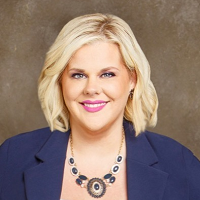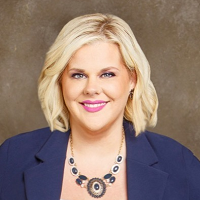Three Common Social Security Misconceptions: Don’t Make a Claiming Mistake
The rules evolve over time, there’s dated information out there, and what works for someone else might not work for you. Here’s what to look out for.


Profit and prosper with the best of Kiplinger's advice on investing, taxes, retirement, personal finance and much more. Delivered daily. Enter your email in the box and click Sign Me Up.
You are now subscribed
Your newsletter sign-up was successful
Want to add more newsletters?

Delivered daily
Kiplinger Today
Profit and prosper with the best of Kiplinger's advice on investing, taxes, retirement, personal finance and much more delivered daily. Smart money moves start here.

Sent five days a week
Kiplinger A Step Ahead
Get practical help to make better financial decisions in your everyday life, from spending to savings on top deals.

Delivered daily
Kiplinger Closing Bell
Get today's biggest financial and investing headlines delivered to your inbox every day the U.S. stock market is open.

Sent twice a week
Kiplinger Adviser Intel
Financial pros across the country share best practices and fresh tactics to preserve and grow your wealth.

Delivered weekly
Kiplinger Tax Tips
Trim your federal and state tax bills with practical tax-planning and tax-cutting strategies.

Sent twice a week
Kiplinger Retirement Tips
Your twice-a-week guide to planning and enjoying a financially secure and richly rewarding retirement

Sent bimonthly.
Kiplinger Adviser Angle
Insights for advisers, wealth managers and other financial professionals.

Sent twice a week
Kiplinger Investing Weekly
Your twice-a-week roundup of promising stocks, funds, companies and industries you should consider, ones you should avoid, and why.

Sent weekly for six weeks
Kiplinger Invest for Retirement
Your step-by-step six-part series on how to invest for retirement, from devising a successful strategy to exactly which investments to choose.
Although Social Security provides a significant portion of the income most retirees depend on when their paycheck goes away, many people — even those who plan to retire soon — know little about how the program works.
It’s easy to understand why. The rules that determine whether you’re eligible for Social Security, how much you can get and when you can claim your benefits can be complex — and they continue to evolve over time. There’s a lot of dated information out there, not to mention all the stuff that’s just plain wrong.
I hear the misinformation that’s being passed around — or passed down from one generation to the next — all the time. And I worry for the many future retirees who could make an expensive mistake when claiming their benefits based on something they read a few years ago, or something they were told at a party, or even something they saw on the Social Security Administration’s website, but didn’t interpret correctly.
From just $107.88 $24.99 for Kiplinger Personal Finance
Become a smarter, better informed investor. Subscribe from just $107.88 $24.99, plus get up to 4 Special Issues

Sign up for Kiplinger’s Free Newsletters
Profit and prosper with the best of expert advice on investing, taxes, retirement, personal finance and more - straight to your e-mail.
Profit and prosper with the best of expert advice - straight to your e-mail.
Here are three of the misconceptions I hear most — and a reality check for each:
Misconception #1: Social Security benefits are in danger of disappearing.
We’ve all seen the news stories warning that the Old-Age and Survivors Insurance (OASI) Trust Fund, which helps pay Social Security benefits for current retirees, could experience a funding shortfall as soon as 2033. And unless something is done to fix the trust’s long-term funding problems, Social Security recipients’ benefits may be reduced in the future.
That doesn’t mean the overall program is going bankrupt, however, or that benefits will disappear entirely. As long as Americans are working and paying taxes, Social Security can survive.
Your checks might be smaller — by about 23%, according to the OASI trustees’ “best estimates.” But, again, that’s only if nothing changes. And there are several things the government can do to help keep Social Security funded. It could increase the Social Security payroll tax rate, for example. It could push back the full retirement age (the age when you’re eligible to receive 100% of the benefits you’re owed). Or it could make changes to the way Social Security's cost-of-living adjustment (COLA) is calculated.
Whatever happens, it’s unlikely our elected officials will do anything to rile up the Baby Boomers who are already retired or will be retiring soon. (No politician who hopes to be re-elected wants to mess with those folks.) Still, you may want to talk to your financial adviser about a backup income stream just in case benefits are reduced at some point. If you’re still working, you also might consider contributing more to your 401(k) or IRA.
Misconception #2: There’s only one ‘right’ retirement age.
Some people think it only makes sense to claim your benefits at 62 (the earliest age you can file). Others believe 65 is the best choice, because that’s when Medicare starts. And some are set on filing at their full retirement age (FRA), which ranges from 66 to 67, depending on your year of birth.
The reality is, there’s no “right” retirement age; it’s different for everyone, and there are many factors to consider, including your health, if you’re married, if you plan to keep working after claiming your benefits, how your benefits might impact your taxes and the role your benefits might play in the legacy you hope to leave behind for your loved ones.
What you don’t need to worry about is when your parents, friends, co-workers and neighbors claim their benefits, or what they think you should do. Your retirement income plan could look very different from theirs — if, for example, they have guaranteed income from a workplace pension and you don’t, or if you have a two-income household and they don’t.
And, going back to Misconception #1, if you’re thinking about filing at 62 so you can get your money “before Social Security is gone,” you may want to reassess that strategy. Remember, the worst-case scenario at this point is that benefits may someday be reduced. But if you file early (before your FRA), your benefits will definitely be reduced, permanently, and from day one.
Misconception #3: Waiting until 70 to maximize your benefit is always the best option.
It is true that if you wait until you’re 70 to claim your benefits, your payments will be bigger.
Every month you delay filing past your FRA, Social Security will increase your payment by two-thirds of 1%, or about 8% per year. That’s a really nice bump and absolutely worth considering.
But waiting isn’t necessarily the right option for everyone. It’s important to think about your overall financial plan and what you’ll require — and when you’ll require it — to reach your retirement goals.
Would you like to get your benefits when you’re younger, albeit in smaller payments, so you can travel and enjoy other activities? Or do you think you’ll need more income when you’re older, for medical bills or long-term care?
If you’re facing a long-term funding shortfall of your own, you may find it makes sense to delay filing and get the increased benefit. But you’ll also want to be sure you can make ends meet in the meantime, by continuing to work or tapping other income sources first.
Unfortunately, there’s no easy, one-size-fits-all answer.
Which is why retirement income planning is so valuable!
Coordinating the various income streams you’ll have available to you when your paycheck goes away is arguably the most important part of retirement planning. Often, the decisions you make regarding guaranteed income (Social Security, employer-backed pensions, annuities) can’t be reversed, so those choices shouldn’t be made lightly. And you’ll want to be clear about how each income stream could impact your taxes and other parts of your plan.
Since Social Security is often the key to getting your income right in retirement, you also may want to talk to a financial adviser about running a Social Security optimization report to narrow down the overwhelming number of claiming options. You’ll get up-to-date research based on your individual situation and needs (or your needs as a couple). And you won’t have to worry about misinformation, politics or what your neighbor Bob said at the last barbecue.
Kim Franke Folstad contributed to this article.
The appearances in Kiplinger were obtained through a PR program. The columnist received assistance from a public relations firm in preparing this piece for submission to Kiplinger.com. Kiplinger was not compensated in any way.
Insurance products are offered through the insurance business Impact Partners Financial, LLC. Impact Partners Financial, LLC is also an Investment Advisory practice that offers products and services through AE Wealth Management, LLC (AEWM), a Registered Investment Advisor. AEWM does not offer insurance products. The insurance products offered by Impact Partners Financial, LLC are not subject to investment Advisor requirements. Neither the firm nor its agents or representatives may give tax or legal advice. Individuals should consult with a qualified professional for guidance before making any purchasing decisions. The appearances in Kiplinger were obtained through a PR program. The columnist received assistance from a public relations firm in preparing this piece for submission to Kiplinger.com. Kiplinger was not compensated in any way. 1820564 - 05/23
Profit and prosper with the best of Kiplinger's advice on investing, taxes, retirement, personal finance and much more. Delivered daily. Enter your email in the box and click Sign Me Up.

As the Chief Executive Officer of Texas-based Impact! Partners Financial and an Investment Adviser Representative, Summer A. Roberts believes in transparency, relentless due diligence and providing personal service to her clients. She also donates her time to several nonprofit organizations in her community. A native of Biloxi, Miss., Summer earned her bachelor’s degree from Southern Methodist University.
-
 How Much It Costs to Host a Super Bowl Party in 2026
How Much It Costs to Host a Super Bowl Party in 2026Hosting a Super Bowl party in 2026 could cost you. Here's a breakdown of food, drink and entertainment costs — plus ways to save.
-
 3 Reasons to Use a 5-Year CD As You Approach Retirement
3 Reasons to Use a 5-Year CD As You Approach RetirementA five-year CD can help you reach other milestones as you approach retirement.
-
 Your Adult Kids Are Doing Fine. Is It Time To Spend Some of Their Inheritance?
Your Adult Kids Are Doing Fine. Is It Time To Spend Some of Their Inheritance?If your kids are successful, do they need an inheritance? Ask yourself these four questions before passing down another dollar.
-
 The 4 Estate Planning Documents Every High-Net-Worth Family Needs (Not Just a Will)
The 4 Estate Planning Documents Every High-Net-Worth Family Needs (Not Just a Will)The key to successful estate planning for HNW families isn't just drafting these four documents, but ensuring they're current and immediately accessible.
-
 Love and Legacy: What Couples Rarely Talk About (But Should)
Love and Legacy: What Couples Rarely Talk About (But Should)Couples who talk openly about finances, including estate planning, are more likely to head into retirement joyfully. How can you get the conversation going?
-
 How to Get the Fair Value for Your Shares When You Are in the Minority Vote on a Sale of Substantially All Corporate Assets
How to Get the Fair Value for Your Shares When You Are in the Minority Vote on a Sale of Substantially All Corporate AssetsWhen a sale of substantially all corporate assets is approved by majority vote, shareholders on the losing side of the vote should understand their rights.
-
 How to Add a Pet Trust to Your Estate Plan: Don't Leave Your Best Friend to Chance
How to Add a Pet Trust to Your Estate Plan: Don't Leave Your Best Friend to ChanceAdding a pet trust to your estate plan can ensure your pets are properly looked after when you're no longer able to care for them. This is how to go about it.
-
 Want to Avoid Leaving Chaos in Your Wake? Don't Leave Behind an Outdated Estate Plan
Want to Avoid Leaving Chaos in Your Wake? Don't Leave Behind an Outdated Estate PlanAn outdated or incomplete estate plan could cause confusion for those handling your affairs at a difficult time. This guide highlights what to update and when.
-
 I'm a Financial Adviser: This Is Why I Became an Advocate for Fee-Only Financial Advice
I'm a Financial Adviser: This Is Why I Became an Advocate for Fee-Only Financial AdviceCan financial advisers who earn commissions on product sales give clients the best advice? For one professional, changing track was the clear choice.
-
 I Met With 100-Plus Advisers to Develop This Road Map for Adopting AI
I Met With 100-Plus Advisers to Develop This Road Map for Adopting AIFor financial advisers eager to embrace AI but unsure where to start, this road map will help you integrate the right tools and safeguards into your work.
-
 The Referral Revolution: How to Grow Your Business With Trust
The Referral Revolution: How to Grow Your Business With TrustYou can attract ideal clients by focusing on value and leveraging your current relationships to create a referral-based practice.